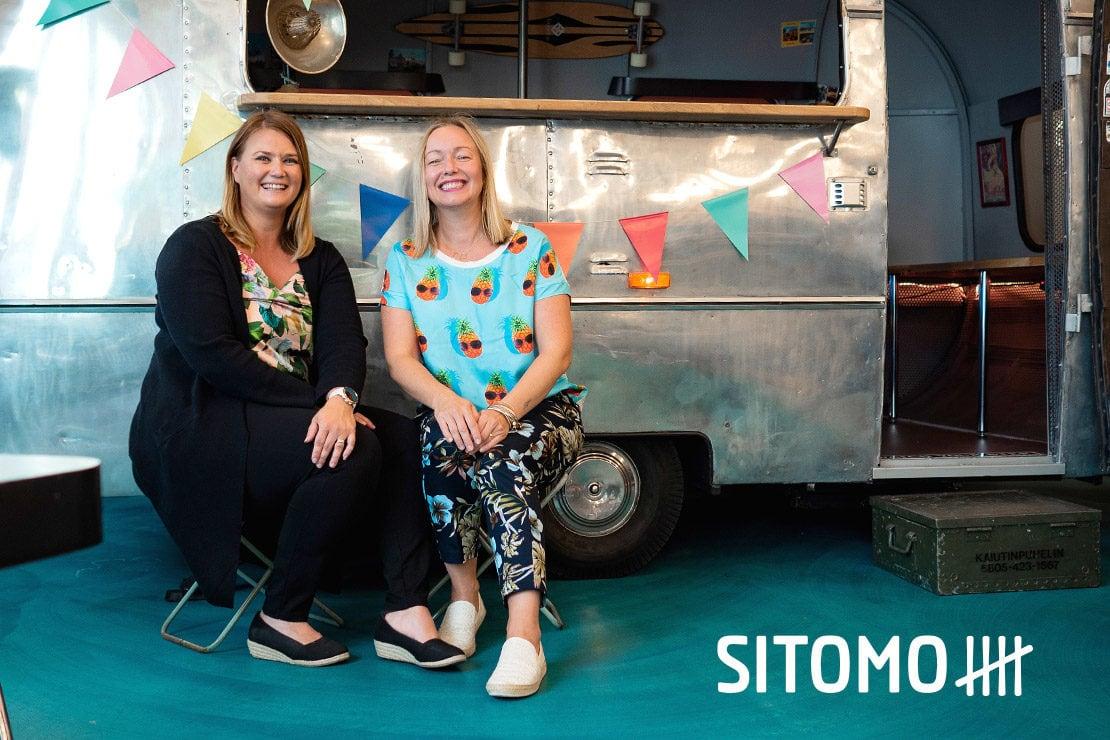30Aug2019
Change is a remarkable thing. Across the business world, changes in people, circumstances, and events have the power to impact working life and society to a great extent.
International consultancy companies have forecasted the impact of digitalization on employment. They estimate that, in the US alone, digitalization and new tools for data collection and editing can reduce 51% of the existing work that takes place across various industries and sectors – and that pace is only accelerating. Globally, up to 1.3 billion jobs can be automated in the near future. Consequently, for the current model to function, work must become more productive.
Change is both an opportunity to accelerate business growth and a challenge for senior management. To navigate the turbulent waters that change can present, companies and management teams would do well to focus on their vision and figuring out how to make it into a reality through better cooperation.
At Sitomo, we hope to encourage people to see how significantly productivity is influenced by cooperation. For leaders, this calls on their ability to open up to genuine interactions. Authenticity requires courageous self-analysis.
How can leadership be developed?
This is not an overnight process, and leadership development never ends. It’s a continuous game of regeneration, scenario work, seizing opportunities, and encouraging people within an organization. As such, it creates specific demands within leadership teams:
- Courage
- Clarity
- Trust
Courage
Courageous leaders demand the attention of those around them, and it encourages their people to have faith in them moving forward. American researcher Brené Brown, whose TED Talk on leadership has been viewed more than 36 million times, says that there is no courage without vulnerability or emotional risk. To be courageous means to experience fear and/or uncertainty and persevere.
Courage is just as contagious as fear. A management team, a director, a manager, and an entire organization that understands this will naturally develop resilience and flexibility within an organization. When you head for something new, you must be able to tolerate uncertainty.
Courage springs from vulnerability. Embracing vulnerability allows for uncertainty, mistakes, searching, exploring, experimenting, and, ultimately, innovating. Every company should encourage and develop these skills within their employees because, at the end of the day, it can only benefit their business.
Clarity
Successful leaders have a clear vision that helps guide and organize their teams. The clarity in leadership is often best demonstrated through a common set of values and a shared understanding of how they are put into practice.
Does your team have a shared belief system? Do all your people know your value base and are they able to make choices based on these values? Can you identify situations in which you encountered opposing values within your team?
The common value base serves as a commitment for your staff, an attractive offer for your customers, and a guiding point for management-level decisions. People who lead with clarity have transformed to fill a visionary role pointing their teams in the right direction.
Change, in this context, can take many forms. If the demands of the economic and political climate of a company require reorganization, this can look like moving from a hierarchical and rules-based system to a cross-functional team. The impact of this is huge and can be felt all the way down to the individual employee who will also need to adapt to a new way of working.
Trust
Trust is equivalent to capital; trust makes change possible; trust in the internal structure of the company and in the relationships with partners and customers brings measurable benefits. Imagine the opposite world: you are not trusted as a leader, you are not trusted by customers and partners. How much energy would you be draining into things that now flow relatively easily?
According to German sociologist Niklas Luhmann, trust capital helps people survive in trying times. Complexity and uncertainty create a particularly strong demand for trust. And this is equally true for society and teams within an organization. Trust capital makes it easier to make new openings, explore new dimensions, and tackle things through experimentation.
Trust also motivates people to do things as well as possible because they feel safe. To build trust, we need to understand what kind of behavior feeds or violates trust, and make the desired behavior clearly visible and tangible.
Test Your Organizational Flexibility
Brené Brown has a model to gauge an organization’s flexibility – how do you think your company would rank? Ask yourself the following questions:
- Are you able to be vulnerable? Are you able to tolerate uncertainty and constructively confront the facts in difficult and demanding situations? Are leaders able to endure discomfort while preserving the team’s ability to function? Are you able to demonstrate exemplary organizational courage in your own actions?
- Are you clearly sharing the same values? Does each of your team members know your guiding base values? Are you able to make choices based on the values?
- Do you consider trust as an important form of capital? Do you know how to build trust in your organization, with partners, and with customers?
- Do you know how to encourage people in the face of adversity? The ability to rise and continue forward as a leader, as a team, and as an organization is essential in a rapidly changing world.
You’ll never be fully flexible – this is an ongoing process that requires change and development as your organization and team grows. If you see some clear room for improvement, you should think about how your culture could be improved. During different stages of growth, you must be able to create an atmosphere in which people are receptive to change. Focusing on fear as a leader will cause your people to defend themselves, withdraw into their shell, play their own game, and look for culprits.
Significance of leadership development
The courage that stems from vulnerability will be important when tackling the difficult discussions that ultimately take the organization forward. In the wise words of Brené Brown, “Stop being polite – polite in such a way that you don’t dare to raise difficult subjects. Behave well and value people and yourself, but not so that you are sweeping difficult things under the table.”
So, let the cat out of the bag today and continue as an organization towards a culture of change. This change will offer the opportunity for courageous, decisive, and ambitious companies to succeed in an unprecedented way.
Let’s be courageous together!
This is a guest article written by our partner Sitomo. The authors are Nina Rinne (nina.rinne@sitomo.fi) and Riikka Seppälä (riikka.seppala@sitomo.fi).

 by:
by: 
